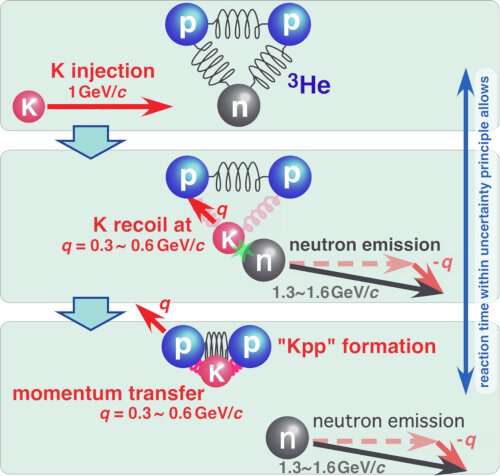To investigate this, the research group launched experiment to try to bind a kaon to a nucleus. To do the experiment, the researchers decided to use a helium-3 target—a nucleus made up of two protons and a single neutron. By knocking out a neutron from the helium-3 target they were able to greatly reduce the energy of the kaon by using the recoil from the ejection and replacing the neutron with a kaon, forming a tightly bound nucleus with two protons and a single kaon.
“What is important about this research,” says Masahiko Iwasaki, the leader of the team, “is that we have shown that mesons can exist in nuclear matter as a real particle—like sugar that is not dissolved in water. This opens up a whole new way to look at and understand nuclei. Understanding such exotic nuclei will give us insights into the origin of the mass of nuclei, as well as to how matter forms in the core of neutron stars. We intend to continue experiments with heavier nuclei to further our understanding of the binding behavior of kaons.”
